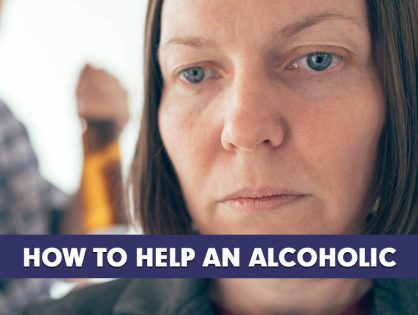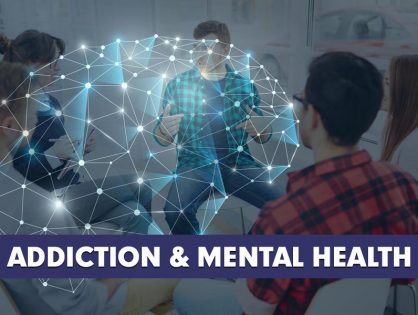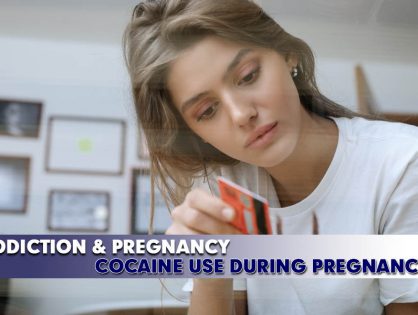Prescription Drug Rehabilitation
There are many varied substances or prescription drugs that are used both legally and illegally. As dependence increases addiction to these drugs and the use of illegal streams increases the chance of overdose and death.
Prescription drug addiction has grown throughout the world as new highly addictive medications have been prescribed. Addiction Treatment is available.

CALL OUR TOLL FREE HELP LINE NOW 855 885 5805
PRESCRIPTION ADDICTION and TREATMENT
Prescription drugs are more readily available now than ever before, and new options seem to be continually entering the market. Each one certainly offers a number of benefits for those suffering from chronic pain, anxiety, depression or a wide range of other medical conditions.
Despite their effectiveness in helping to treat specific ailments, many of these medications are also causing more than their fair shares of problems. Abuse and addiction are among the most widespread of these issues. At Canadian Addiction Rehab, we’re here to help combat the negative impacts these medications can have when dependence tightens its grip.
There is a very large range of prescription drugs that a user can become addicted to, each comes with differing sets of symptoms. Below is a list of common symptoms when a user find themselves addicted:
- Prioritizing redosing of the drug
- Increasing dosing frequency
- Missing important engagements, isolation, secretive
- Disrupted sleep patterns
- Financial issues
- Weight fluctuation
- Defensiveness and irritability
- Loss of control over amount and frequency of use
- Cravings and compulsive use
- Continuing use during and after adverse consequences
These are some of the most common categories of prescription drugs:
Prescription Sedatives
Prescription drug addiction for sedatives is quite common especially for those that need treatment for anxiety and insomnia. There is a tendency for sedative abuse for those seeking the calming and numbing effects. Some of the drugs that are part of prescription drug addiction include Nembutal, Ativan, Xanax, and Ambien. Addiction means that individuals can no longer function without the drug. If doctor administered prescriptions are concluded addicts will seek out illegal avenues to obtain a supply.
Prescription Opioids
Some of the opioids include methadone, codeine, morphine, and oxycodone. Prescription drug dependence to opioids is typically as a result of increased dosage required for pain management. Just like sedatives when a doctor prescription runs out, addicted individuals will seek out illegal avenues. Illegal streams sometimes contain other drugs such as cocaine, heroin or other drugs.
Prescription Stimulants
Some of the most common stimulants that cause addiction include amphetamines. This prescription drug is typically used for the treatment of health conditions such as obesity and Attention Deficit Disorders. Addiction occurs when people can not function with the drugs. Stimulants give alertness, energy and a heightened state of awareness. When a doctor prescribed stimulant is stopped it leads individuals to seek out illegal means.
Call now for support
1 - 855 885 5805
For treatment or support, we’re only a phone call away. Our professionals are available to help around the clock.
Exploring The Scope Of The Situation
According to a recent report from the National Centre for Biotechnology Information, opioid prescriptions alone have surged more than 3,000 percent in Canada over the last three decades. Sedatives and stimulants haven’t increased quite to that extent, but they’re on an upward trend as well.
In most cases, people’s experiences with these medications start out harmlessly enough.
Physicians prescribe them for legitimate medical issues or well-meaning friends or loved ones share some of their medications with others. Still, matters all too often get out of hand after the fact.
As the number of prescriptions being handed out has grown over the years, so has the number of people ultimately abusing these medications. An estimated eight people die and sixteen are hospitalized each day across the nation due to opioid misuse. Thousands more are negatively affected by other medications meant to help rather than harm.
Prescription abuse is creating hardships for individuals, families and even entire communities. In turn, it’s having a negative impact on the entire nation. Despite the widespread and continually growing prevalence of the problem, few people truly realize its causes and consequences.
Why Do People Abuse Prescription Drugs?
As is the case with virtually all substances, whether controlled, illegal or otherwise, prescription abuse comes from a number of causes. As mentioned, it often starts out as a true medical need. Sometimes, simple curiosity kick-starts the process. Peer pressure can’t be ignored because it’s growing stronger by the year.
Some people take sedatives or prescription painkillers to help them be more outgoing in social situations or to overcome occasional stress. Stimulants are often abused because of their side effects. Though they’re meant to ramp up the central nervous system, they actually generate an opposite reaction for those with ADD and ADHD because their bodies are wired differently. This is why they’re prescribed for these conditions.
When taken by someone without these or other disorders for which they’re helpful, they can provide an energy boost, increase focus and clarity and act as an appetite suppressant to help with weight loss. Over time, occasional or temporary misuse grows into something more harmful.
Digging Deeper into the Situation
Genetic predisposition is a major component in countless cases of prescription drug abuse. In short, it often runs in the family. Those with relatives who suffer from substance abuse disorders live with an increased risk of misusing alcohol, prescription medications or other drugs themselves. Of course, several other aspects factor into the equation as well.
Underlying Mental Disorders
Studies have shown those with underlying, often undiagnosed conditions like anxiety or depression are more than twice as likely to become dependent on prescription painkillers. People suffering from chronic pain also have a tendency to abuse drugs not meant to treat their immediate symptoms, like sedatives or stimulants.
Additional Medical Conditions
Along those same lines, people with dopamine or serotonin deficiencies are at greater risk of becoming addicted to prescription drugs. Dopamine is a mood and concentration enhancer whereas serotonin reduces social anxiety, regulates sleep and helps improve memory among other benefits.
Conditions such as Parkinson’s disease, depression and schizophrenia are known to cause low dopamine levels; on the other hand, anxiety, OCD and similar issues can decrease serotonin levels.
Opioids increase dopamine and serotonin levels. Stimulants generally boost dopamine production while sedatives cause spikes in serotonin levels.
The Fear Factor
Pain, be it emotional or physical, is a powerful motivator. Commonly abused prescriptions are designed to ease different types of pain in one way or another whether they’re caused by injuries, depression, emotional trauma, nerve disorders or any other issue. These medications do legitimately serve their purposes for their respective conditions; otherwise, no one would be inclined to take them in the first place.
Here’s where the problem begins for a number of people. What if their symptoms come back after the meds are out of their systems? No one wants to experience pain or misery, so they keep taking the prescriptions just in case.
Withdrawal
Withdrawal brings about a wide range of symptoms in its own right. Sometimes, they’re even more extensive and excruciating than those of the conditions they’re meant to treat. In many cases, the line between the medical issue and withdrawal isn’t easy to find.
Human Nature
On top of all these facets, every person on Earth is contending with a single common contributing factor in substance abuse: the human element. Our brains and bodies need the compounds prescription medications provide in order to maintain balance. We’re equipped with natural production mechanisms that may or may not be functioning adequately, and we all have receptors waiting to collect them and put them to proper use.
How Does Abuse Evolve into Addiction?
Overall, people take prescription medication to feel better. For some, it’s a matter of improving their quality of life. For others, it’s just a matter of heightening their perception of life for a little while. Either way, drug abuse is about finding a new, more favorable norm.
Eventually, though, those who abuse medications begin to need them. They alter brain chemistry, and without them, the mind and body can’t function as they should. Over time, the body even builds up a tolerance and requires increasing amounts of the drugs to produce the desired effects. This is where the transition takes place.
Prescription drug abuse is defined as habitual use of a potentially addictive medication. Addiction enters the picture when this consistent use becomes a physical and mental dependence. At that point, not taking the medication could have severe and potentially dangerous repercussions. It’s a vicious, ongoing cycle.
Understanding the Dangers of Addiction
On the outside, the impacts of prescription abuse and addiction are easy to spot. Lives are disrupted, families are torn apart and careers are destroyed to name a few consequences. While those effects are devastating enough on their own, much of the aftermath isn’t so obvious.
Dependence causes a long list of internal health problem as well.
- Cardiovascular Damage
- Heart Attack
- Seizures
- Stroke
- Severe Fatigue
- Impaired Reflexes
- Temporary or Permanent Nerve Damage
- Persistent Short-Term Memory Loss
- Liver Damage
- Kidney Damage and Failure
- Slowed Breathing
- Respiratory Failure
- Blurred Vision
- Ongoing Digestive Issues
- Paranoia
- Mood Swings
- Low or High Blood Pressure
- Anxiety
- Depression
- Brain Damage
Addiction leads to far more issues than the outwardly evident ones. The mental and physical hazards involved tend to be the most difficult to overcome. Many of these adverse effects are irreversible. They’re also the reasons so many people are hospitalized or lost each year at the hands of prescription medications.
Treatment Program
Canadian Addiction Rehab helps clients remove dependence to Prescription Drugs. We provide a supportive and non-judgmental environment for our clients. Prescription drug addiction affects not just the person dependent on the drug but also the people around them. Our prescription drugs treatment methods are specifically tailored for each individual.
Our program starts with Medically supervised detoxification. We also include therapeutic treatment such as art and music therapy, life management courses, meditation and yoga therapy.
- Recreation Programs
- Holistic treatment approaches (inc. Yoga, Meditation)
- Art and Music therapy
- Relapse prevention information
- Life management
- Counselling for individuals, groups, and families
- Nutritional and dietary counselling
- Physical fitness and personal training
- Aftercare treatment solutions
How Can Canadian Addiction Rehab Help?
Here at Canadian Addiction Rehab, our team of addiction counselling and recovery specialists has seen the effects of the growing nationwide prescription addiction problem firsthand. We’ve developed a unique healing approach focusing not on dependence alone but caring for each client as a whole.
We offer a wide range of programs and activities designed to foster recovery. Our clients may choose to participate in outdoor activities like biking, ziplining, hiking, kayaking, swimming, fishing and other excursions as part of their individual treatment programs. Various alternative and complimentary medicine treatments are made available as well.
Our programs also include a number of components designed to help clients transition back into everyday life once their treatments come to a close. Follow-up care and counselling is likewise available to help them rise above the challenges they’re bound to face along the way.
Don’t Hesitate to Reach out to Us
Addiction is not a choice; it’s a side effect. Taking opioids, sedatives or stimulants may initially be a conscious decision. Still, whether the choice was the result of a medical condition or not, the body can develop physical and mental dependence on prescription medications over time. Then, it grows into an overwhelming need. Thousands of people are victims of this need, but no one chooses to become addicted.
Reaching out for help, on the other hand, is a choice. The road to recovery isn’t a smooth one. It’s riddled with obstacles, unexpected curves and frustrating stalls, but no one has to make the journey alone.
If you or someone you love is addicted to prescription medications, let us help with the healing process. Call us at 1 (855) 885-5805 or fill out the form we’ve provided to learn more about the many treatment options available. We’re on hand around the clock, so don’t wait another moment to place your needs in our hands.
Learn more
Make an Appointment
Call Now for Support
1 855 885 5805
For treatment or support, we’re only a phone call away. Our professionals are available to help around the clock.
How to Help an Alcoholic
Addiction & Mental Health -...
Addiction & Pregnancy - Cocaine...
Quote








